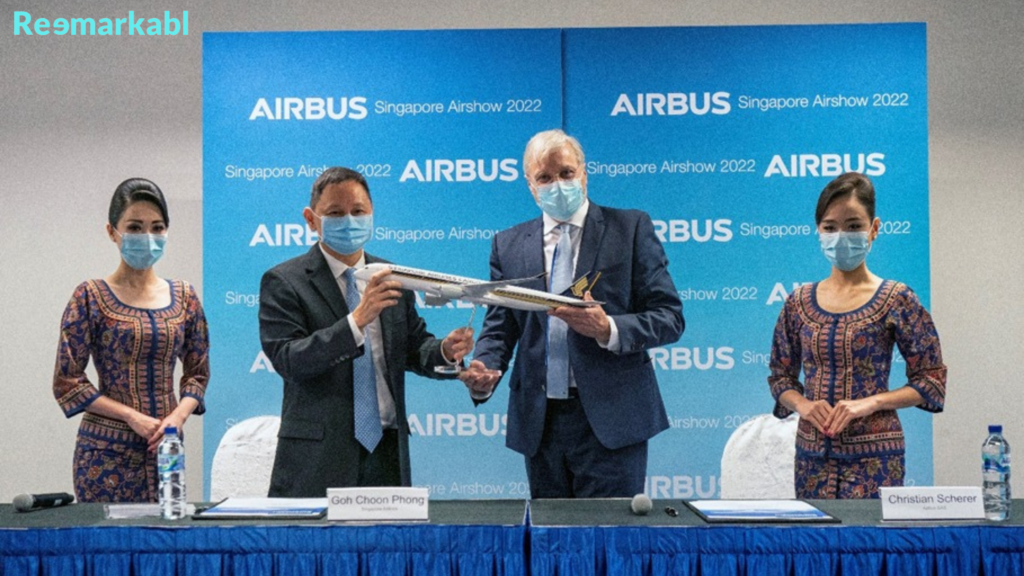
There seems to be buoyancy in the air. As the world opens up so are the skies. State of the art, fuel efficient aircraft innovation seems to be the need of the hour and Singapore Airlines seems of have taken a step ahead to upgrade its fleet.
Singapore Airlines (SIA) has firmed up an order for seven Airbus A350F freighters, with options for five more aircraft. The agreement was signed today at the Singapore Airshow 2022 by Mr. Goh Choon Phong, Chief Executive Officer, Singapore Airlines, and Mr. Christian Scherer, Chief Commercial Officer and Head of International, Airbus.
The A350Fs will replace SIA’s seven Boeing 747-400F freighters. The Airline will be the first carrier to operate this new generation widebody freighter aircraft when deliveries begin in the fourth quarter of 2025.
The A350F burns up to 40% less fuel on similar missions to the 747-400F, reducing SIA’s carbon emissions by around 400,000 tonnes annually. This supports the SIA Group’s goal of achieving net zero carbon emissions by 2050. The A350F is powered by Rolls-Royce Trent XWB-97 engines. Please see Annexe A for more information on the aircraft.
The range and payload of the A350F will provide SIA with greater flexibility in its freighter deployment, bolstering its cargo business and cementing its leading position in the sector. SIA has strengthened its cargo capabilities over the last few years in key segments including e-commerce, fresh produce, and pharmaceuticals. It has also rolled out several digital initiatives that provide greater value and options for customers. Please see Annexe B for more information on SIA’s cargo business.
The A350F deal with Airbus includes a swap with 15 A320neo and two A350-900 passenger aircraft in the SIA Group order book. This allows SIA to manage its capital expenditure while continuing with its essential freighter renewal programme.
Mr. Goh Choon Phong, Chief Executive Officer, Singapore Airlines, said: “This order underscores the importance of the cargo market to the SIA Group. The introduction of the A350F will enhance our capabilities in this key sector, ensuring that we are ready for the growth opportunities that will arise in the coming years. These new-generation aircraft will substantially increase our operating efficiencies and reduce our fuel burn, making an important contribution towards the success of our long-term decarbonisation goals.”

